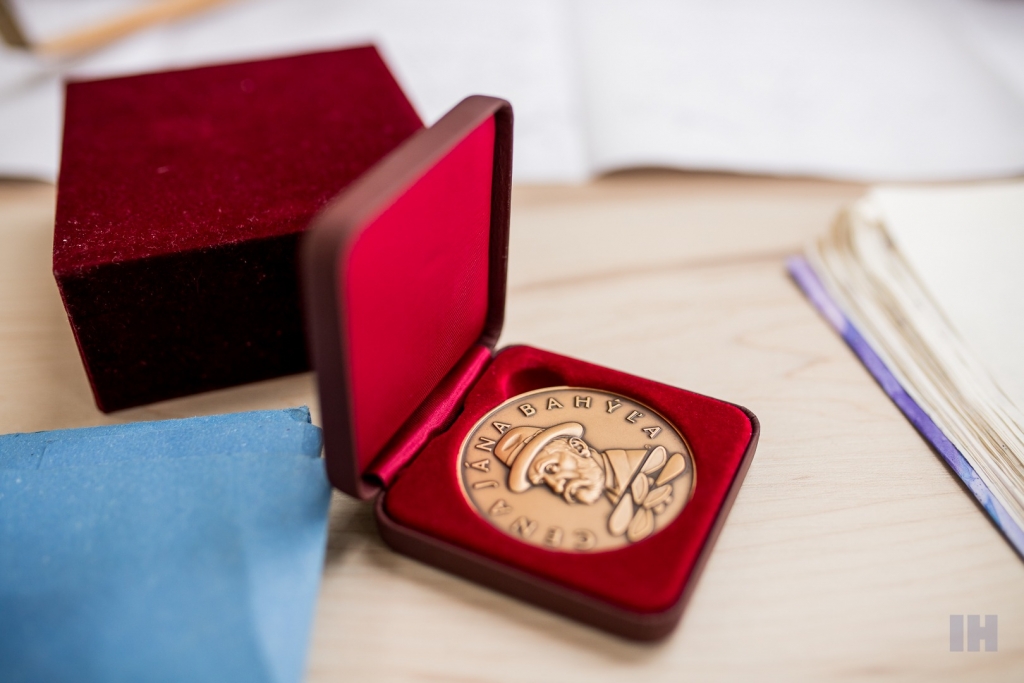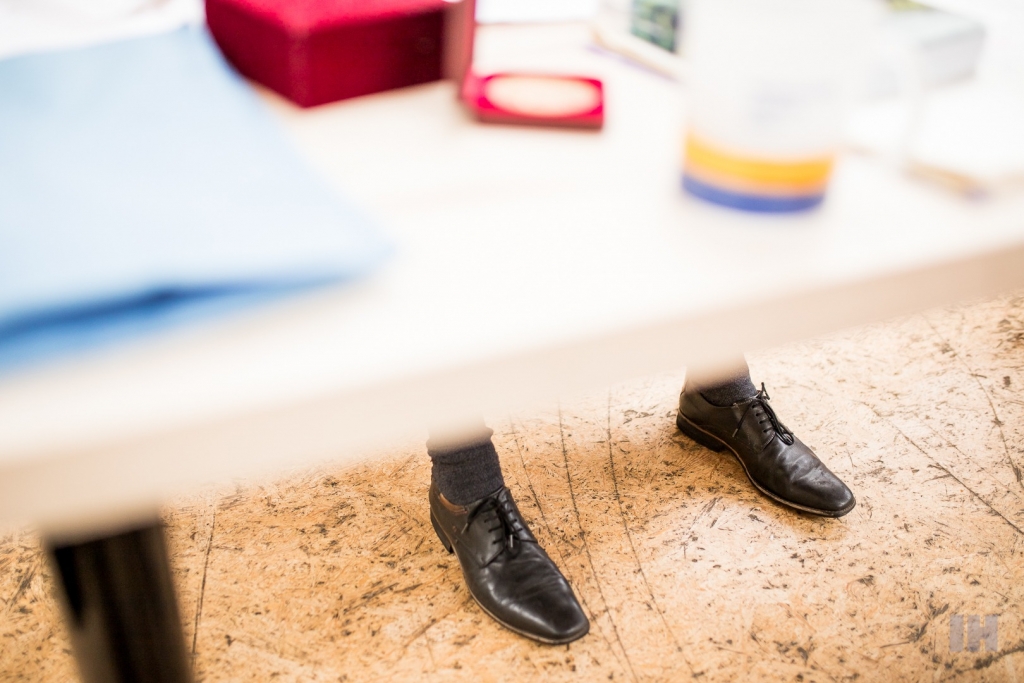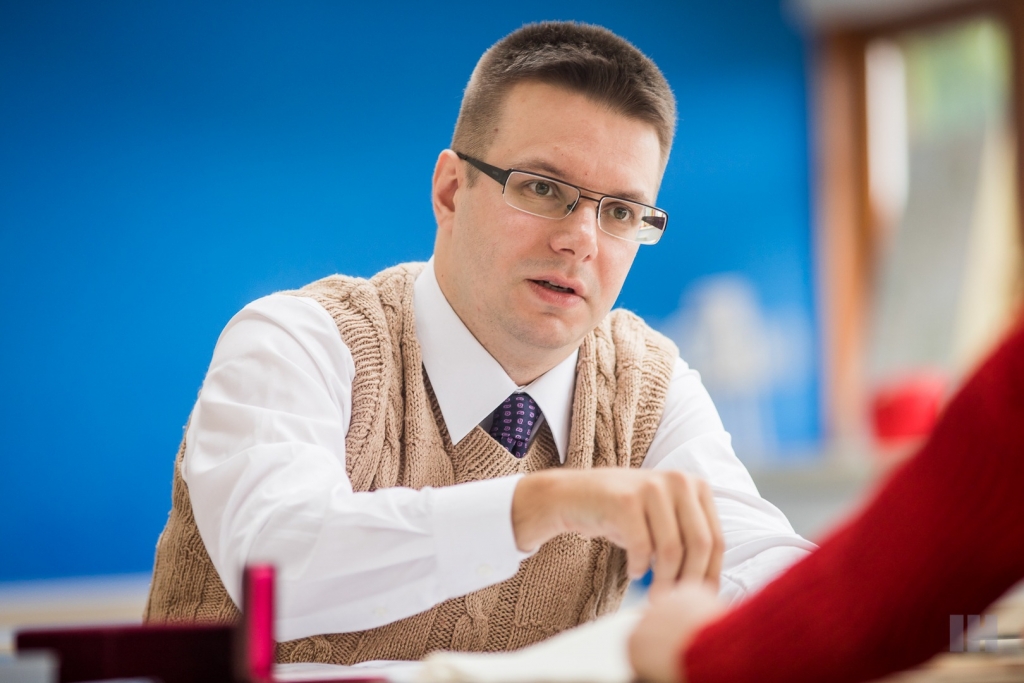He mapped 47 Asian hydroelectric power plants on a motorcycle and fought for Slovak-Taiwan diploma
“If you do something for a price, you’ll miss your goal. A true researcher is willing to put his entire monthly salary on the table just to see how the research would go.” A Slovak scientist and laureate of many awards for micro-urbanization or multi-purpose turbines never let finances or even legislation obstacles stand in his way. On the contrary, his dreams and results were able to change the course of study at a Taiwanese Chung Hua University. Read about the life of a student who fights for his education at any cost, a dissertation thesis comparing the hydropower system of Slovakia and Taiwan, or teaching the Technical University of Košice system at a Taiwanese campus.

One way ticket
Micro urbanist Štefan Tkáč started his studies at a bilingual grammar school in Košice. The second language he studied there also made him opt for one of the first Erasmus+ programmes at the Italian Politecnico di Milano during his bachelor’s program at TUKE (Technical University of Košice). Here, in a foreign country, young Košice resident soon realized the need to help himself out to cover the financial costs. After finishing his bachelor’s degree in architecture and urbanism in Slovakia he wondered where to go next. Štefan was admitted with his results and talent to the prestigious Bauhaus architectural school in Germany, where monthly tuition equalled his family’s entire monthly income. Since it was completely impossible for him, Štefan explored new possibilities.
Shortly afterwards, he found out the engineering program at a Taiwanese university, where he was subsequently admitted with the tuition waiver. Reminiscing, Štefan does not hide the fact that he needed to borrow money for life and a one-way ticket: “Imagine you are 22 years old and you are alone for the first time in a foreign and such remote country. Taiwan is 10 000 kilometres and min. 15 hours one-stop trip from Slovakia. You wake up in Bangkok and then it hits you. Almost 100% of air humidity makes it difficult for you to breathe. You do not know if someone will wait for you at the airport and you do not have a return ticket,” Štefan recalls.
During one year at Chung Hua University, Taiwan, with enough credits, life-guarding part-time shifts, tutoring English and similar community work, Štefan turned to the dean with a request to finish engineering studies after the first year instead of two. The reason was simply the money that Štefan could not accumulate despite all his secondary activities for the next year of his school: “I became the first student to receive a scholarship to cover costs and at the same time I was given the tuition waiver. This matter was settled within 24 hours after my conversation with the dean. I could continue my studies and stay another year,” says Štefan.

47 hydropower plants on a motorcycle
Studying at a Taiwanese university seems for Štefan, as one might say, fateful. During his studies, he met and heard many experts who talked of the term “green architecture” (minimizing the negative impact on human health and the environment). After returning to Košice, he prepared a proposal for the Slovak TUKE academic leadership: Štefan was the first to apply for an intercontinental Euro-Asian double diploma between the Slovak TUKE and the Taiwanese CHU. He would spend 50% of the school year in Taiwan and the remaining half in Slovakia.
His dissertation covered the issue of energy sustainability in micro-urban structures – villages which are supplied with hydropower plants. Right at the beginning of the research, Štefan discovered that the publication listing these power plants in Taiwan was quite obsolete to fill in the so-called research gap. He made an agreement with Taipower, a national company that would fund the research if Štefan prepared and found all the necessary data and information to publish the book. Therefore, during his island adventure, he mapped all 47 hydropower plants on his motorbike, occasionally sleeping in them and taking pictures of each one of them with his camera. You can find his photographs in Taiwanese Hydropower Plants guide book published by Taipower, China’s Hydraulic Institute, CHU and TUKE University: “I studied hydroelectric potential and the system of Slovak and Taiwanese micro-urban structures. I have designed a micro-urban energy model by which urban growth can be sustainable. An important and also interesting factor was the fact that both Slovakia and Taiwan have related geomorphological features.”
“The results of this work confirmed the fact that if we do not develop the energy of our cities with regard to the landscape, there will emerge one big mass that we will not be able to sustainably supply energy with. Taiwan is currently in the process of importing 99.8% of its energy resources and using just over 24% of its hydropower potential. In Slovakia, the use of water resources in the hydropower sector is above 56%.”
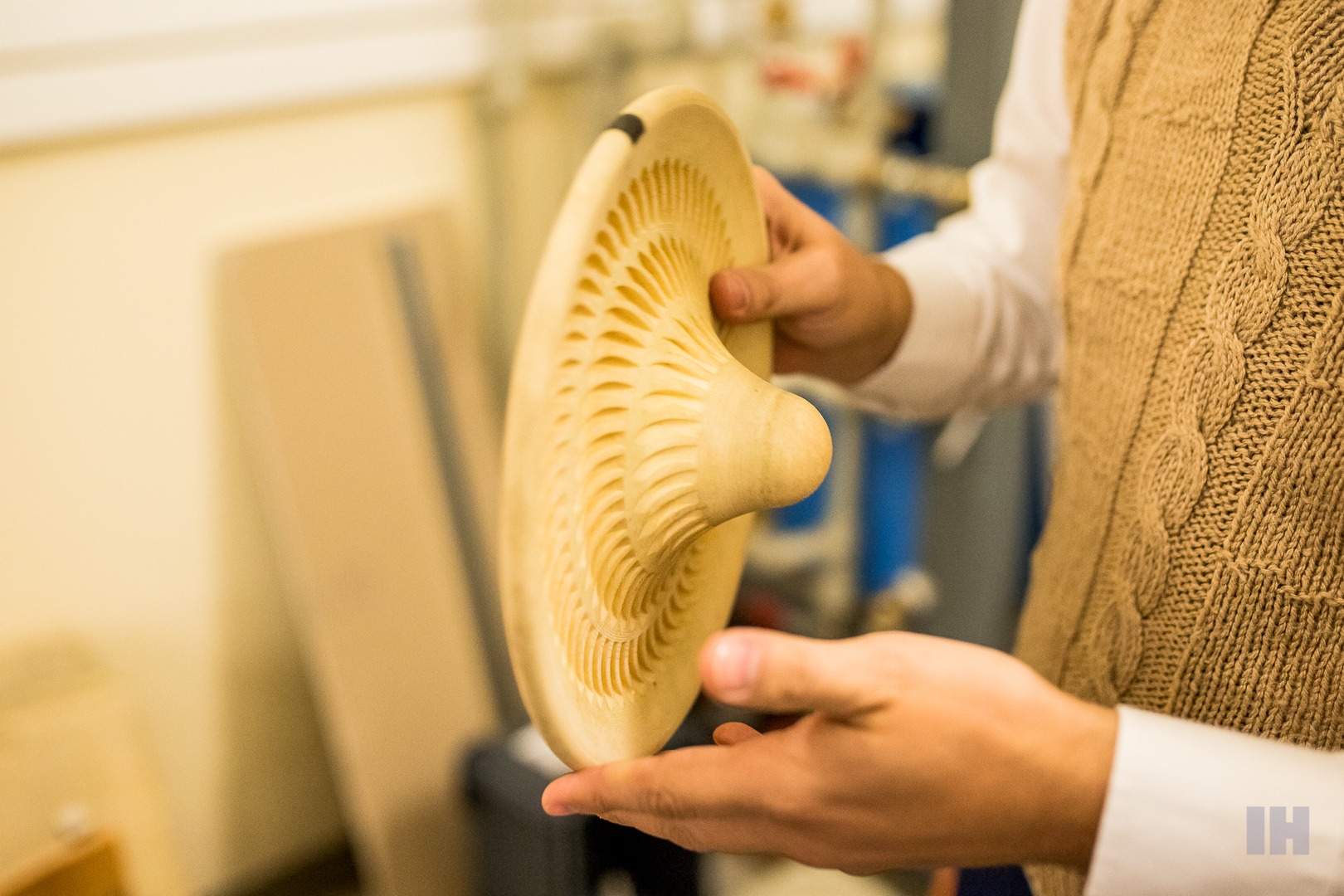
Taiwanese at TUKE no longer have to leave the island
The whole Slovak-Taiwanese story has an impact on the present too, not only for Štefan Tkáč. Taiwanese or even other foreign students and professors can very soon benefit from it. Through the work of Štefan, a Memorandum on Cooperation between Universities and an agreement on the permanent ejection of the Building Faculty of the Technical University in Košice at Chung Hua University was signed in 2018. It is an international teaching concept known as IBC (International Branch Campus). In practice and in our language it refers to the physical detached workplace of the faculty.
“In Taiwan, we will use our education system through the digital Moodle platform prepared by a professor at TUKE, whilst the Taiwanese professors will deliver them to students. The IBC is the ejection of culture and educational form in a foreign country that brings an enormous amount of benefits to both students and teachers. For example, I also work at the American University of Phnom Penh in Cambodia. As a professor, I have a wide range of materials and access to libraries, funds and research in the same way as its American professors. TUKE has been dealing with this agenda since 2015 and I firmly believe that we could have the first students in 2020. Of course, Taiwanese students will pay for such a private form of study with IBC, but these amounts are not as if they were travelling to Slovakia or elsewhere. With a double diploma, they will be able to get on in both of the continents, Europe and Asia, without nostrification forms or other administrative procedures,” explains Štefan.
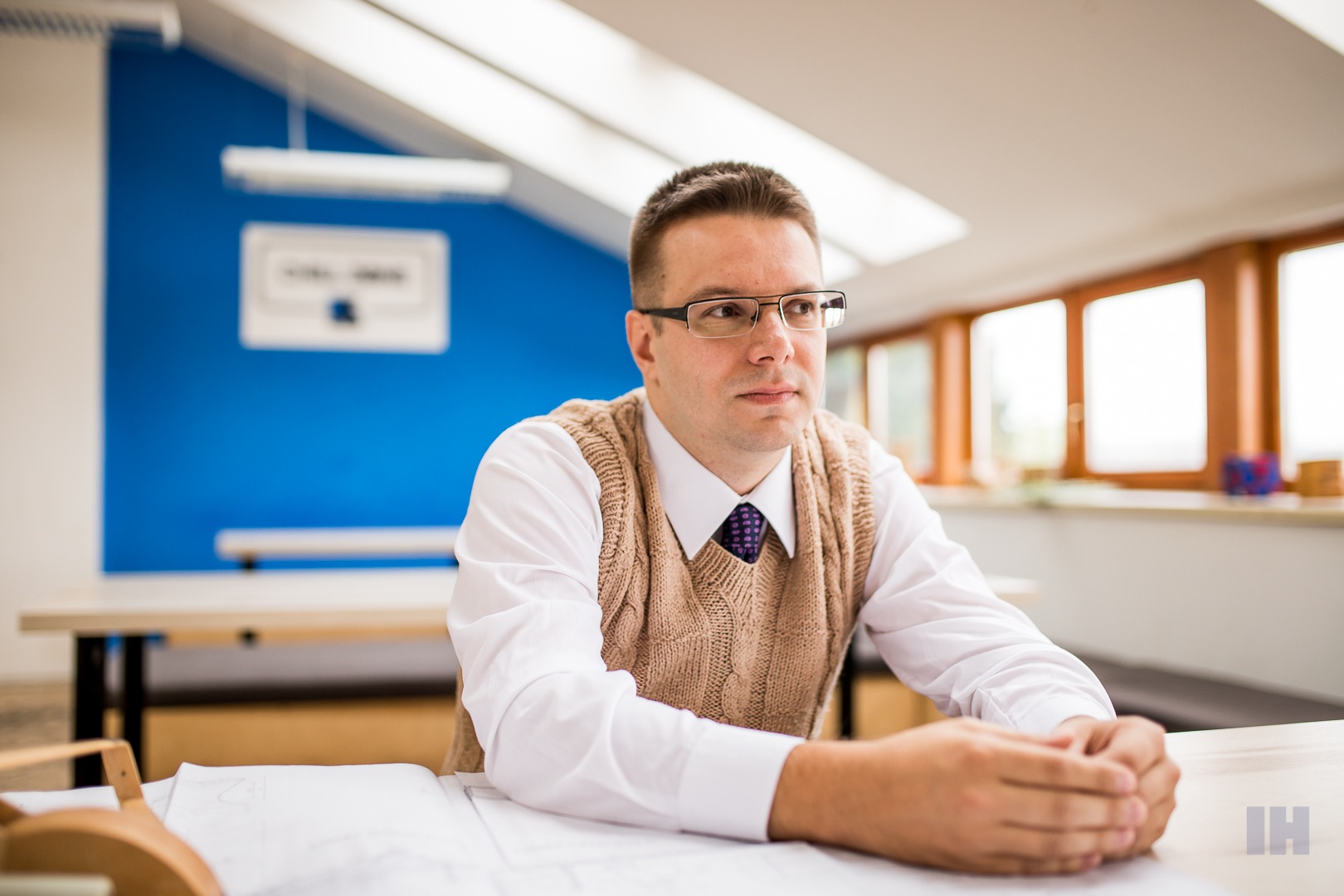
Štefan Tkáč has won several awards such as Ján Bahýl’s Gold Medal, the Gold Medal for the Design of the Micro Urban Multipurpose Turbine or the BMW Special Award for Sustainability and Innovation. He claims that receiving a medal gives a great feeling, but he never demanded any. The appreciation for the work to benefit the society is enough, according to him: “If you do something for the price and not the research, you will break your focus and not reach the goal. Scholarships and medals come later. Creative people are never satisfied. We still want to invent something new.”
You can reach Štefan Tkáč not only in Taiwan or Cambodia but also in Košice. Cool Media art room offers you the benefits of technology within even in a single night. Find out more on The Invisible Hotel.



